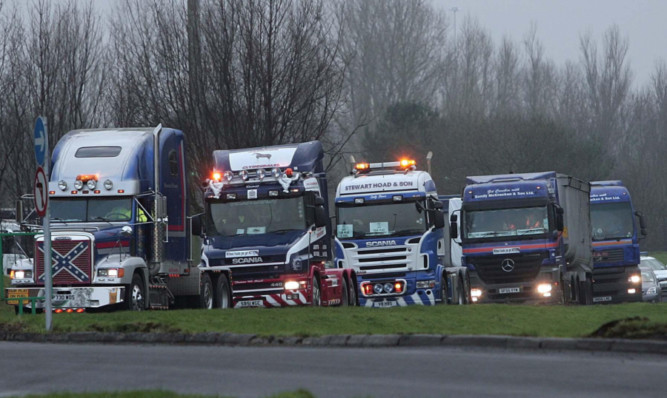The Scottish Executive’s response to the fuel blockade in 2000 was undermined by the reluctance of government departments to release staff with “vast experience in emergencies”, Cabinet papers show.
The crisis, in which protesters cut off the country’s fuel supply in an attempt to get Tony Blair’s administration to reduce duty, was on the verge of paralysing Scotland’s economy and the country’s delivery of vital public services.
The release of Scottish Cabinet briefing papers from the time show how close the UK came to declaring a state of emergency and extending police powers to disrupt peaceful protests, with Scottish ministers entertaining both ideas.
But despite the critical situation, in which NHS Tayside surgeries were cancelled and military personnel were being trained to drive fuel tankers, there was frustration that expert staff in areas such as health, energy and transport were not being released from their day-to-day duties.
A confidential briefing for ministers written in the aftermath of the crisis said the emergency planning branch had a list of staff “with vast experience in emergencies” who could be called upon but some could only help out by eating into their spare time.
It said: “This was used during the fuel shortage in September but there were difficulties when it was found that some staff could not be released without notice. Although disappointing, this must be expected when an issue with as broad an effect as a fuel shortage occurs.”
The memo said they had to ask staff to work longer hours, which it stated would not be acceptable over a longer period of time, adding changes had to be made.
An earlier briefing note for the Fuel Supply Task Force, written at the height of the September 2000 crisis, said the use of the now repealed Emergency Powers Act 1920, last used in 1974 and only called upon 12 times in its history, had “certain attractions”.
